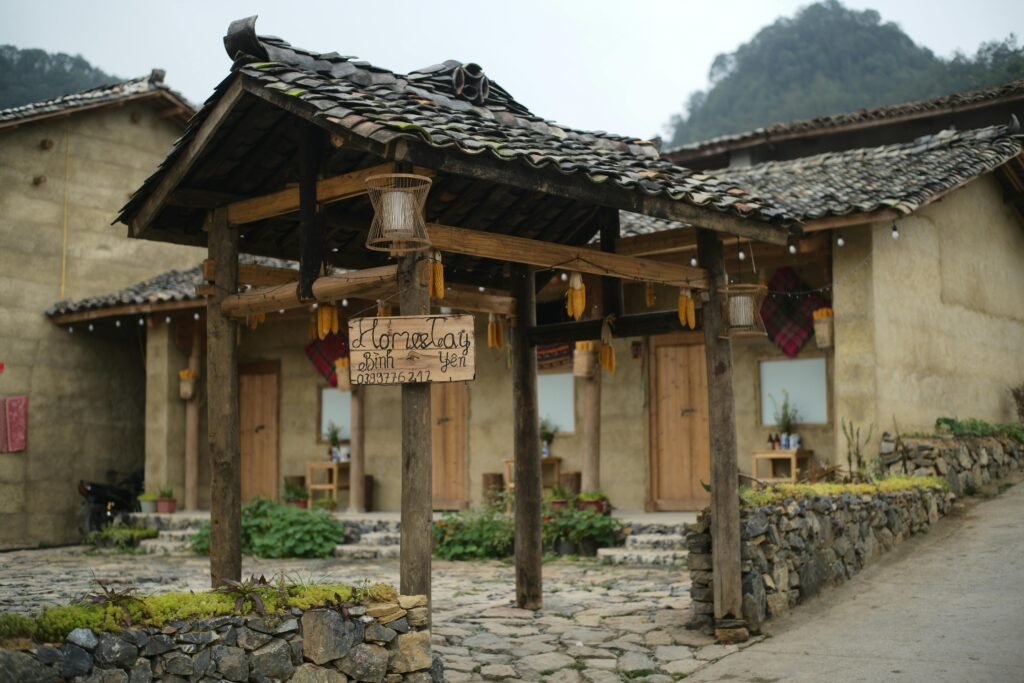
Table of Contents
When planning a trip, one of the most important decisions you’ll make is where to stay. The right accommodation can enhance your travel experience, while the wrong choice may lead to discomfort or unnecessary expenses. Among the various lodging options available, homestays, hostels, and hotels stand out as the most common choices. Each has its own advantages and drawbacks, making it essential to understand their differences before booking.
This article will explore the unique aspects of homestays, hostels, and hotels, comparing them in terms of cost, comfort, privacy, amenities, and overall experience. By the end, you’ll have a clearer idea of which option best suits your travel needs.
What is a Homestay?
A homestay is a type of accommodation where travelers stay in a local family’s home. It offers a more immersive cultural experience and allows guests to interact closely with their hosts. Homestays are popular in regions where travelers seek authenticity and a sense of belonging.

Picture from Pexels
Pros of Staying in a Homestay:
- Authentic Cultural Experience: Living with a local family provides deep insights into their way of life, traditions, and customs.
- Homemade Meals: Many homestays offer home-cooked meals, allowing guests to enjoy traditional cuisine.
- Personalized Attention: Hosts often go out of their way to make guests feel comfortable and may even act as guides.
- Affordable: Homestays tend to be more budget-friendly compared to hotels, especially for long stays.
- Safe and Family-Oriented: These accommodations provide a warm, homely atmosphere, making them ideal for solo travelers and families alike.
Cons of Staying in a Homestay:
- Limited Privacy: Since guests stay within a family home, they may have less personal space compared to a hotel.
- Varied Amenities: Not all homestays offer modern facilities such as Wi-Fi, air conditioning, or private bathrooms.
- House Rules: Guests may need to follow household rules, including meal timings and curfews.
Planning a char dham yatra 2025 – Find here all deails
What is a Hostel?
A hostel is a budget-friendly accommodation that typically offers dormitory-style rooms with shared facilities. Hostels cater mainly to backpackers, solo travelers, and budget-conscious tourists who prioritize affordability over luxury.
Pros of Staying in a Hostel:
- Budget-Friendly: Hostels are usually the cheapest option, making them ideal for travelers on a tight budget.
- Social Environment: Common areas and shared rooms provide opportunities to meet fellow travelers from around the world.
- Convenient Locations: Many hostels are situated in prime locations, close to major attractions and public transportation.
- Flexible Booking Options: Most hostels allow short-term and last-minute bookings, which is great for spontaneous travelers.
Cons of Staying in a Hostel:
- Limited Privacy: Since most hostels have shared dormitories, personal space is minimal.
- Noisy Atmosphere: The social nature of hostels can lead to a noisy environment, which may not be ideal for light sleepers.
- Basic Amenities: Hostels typically offer only essential facilities, and some may charge extra for services like towels, lockers, or Wi-Fi.
- Shared Bathrooms: Travelers may need to share bathrooms with multiple people, which can be inconvenient during peak hours.
What is a Hotel?
A hotel is a commercial establishment that provides private rooms and various services, ranging from budget-friendly to luxury accommodations. Hotels offer a range of amenities, including housekeeping, room service, restaurants, and recreational facilities.
Pros of Staying in a Hotel:
- Comfort and Privacy: Hotels provide private rooms with attached bathrooms, ensuring a comfortable stay.
- Wide Range of Amenities: Depending on the hotel’s category, guests can enjoy facilities such as swimming pools, fitness centers, and spas.
- Professional Service: Hotels offer 24/7 customer service, ensuring a hassle-free experience.
- Security: Many hotels have security measures in place, including CCTV, keycard access, and concierge services.
- Room Service and Dining Options: Guests can order meals to their rooms or dine at in-house restaurants.
Cons of Staying in a Hotel:
- Higher Costs: Hotels, especially those with premium services, can be significantly more expensive than homestays or hostels.
- Less Cultural Interaction: Staying in a hotel often feels more impersonal compared to homestays.
- Extra Charges: Some hotels charge additional fees for services such as Wi-Fi, breakfast, and parking.
Comparison Table: Homestay vs. Hostel vs. Hotel
| Feature | Homestay | Hostel | Hotel |
|---|---|---|---|
| Cost | Affordable | Cheapest | Expensive |
| Privacy | Limited | Minimal | High |
| Cultural Experience | High | Moderate | Low |
| Social Interaction | Moderate | High | Low |
| Amenities | Basic | Limited | Extensive |
| Ideal for | Families, cultural travelers | Backpackers, budget travelers | Business travelers, luxury seekers |
| Dining | Home-cooked meals | Shared kitchen or no food | Restaurant and room service |
| Security | Safe | Moderate | High |
Which Option is Best for You?
The right accommodation depends on your travel style, budget, and personal preferences. Here’s how to decide:
- Choose a Homestay if: You want an authentic cultural experience, enjoy interacting with locals, and prefer a homey environment.
- Choose a Hostel if: You’re a budget traveler, enjoy meeting new people, and don’t mind sharing spaces.
- Choose a Hotel if: You prioritize comfort, privacy, and access to premium amenities.
Final Thoughts
Each accommodation type—homestay, hostel, and hotel—offers unique benefits. Whether you seek adventure, cultural immersion, or luxury, understanding their differences can help you make the best choice for your trip. By carefully considering factors like budget, privacy, and social preferences, you can ensure a comfortable and enjoyable stay wherever you go.
Happy travels!